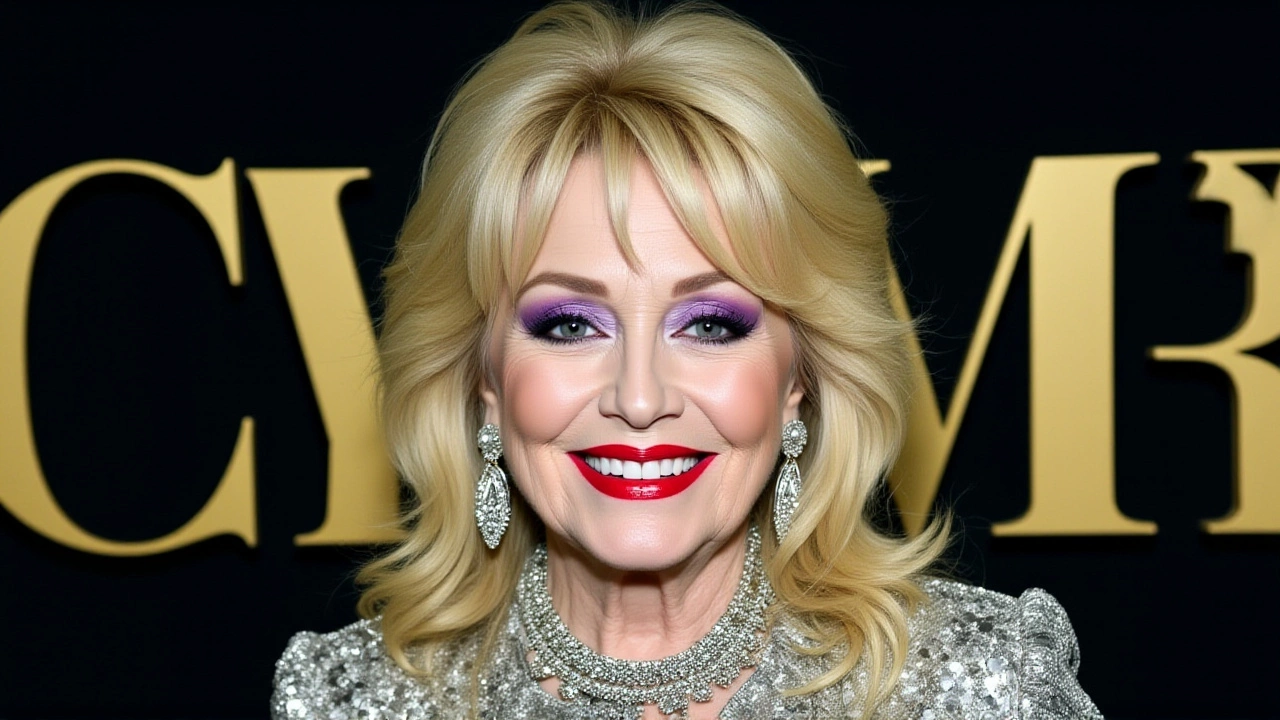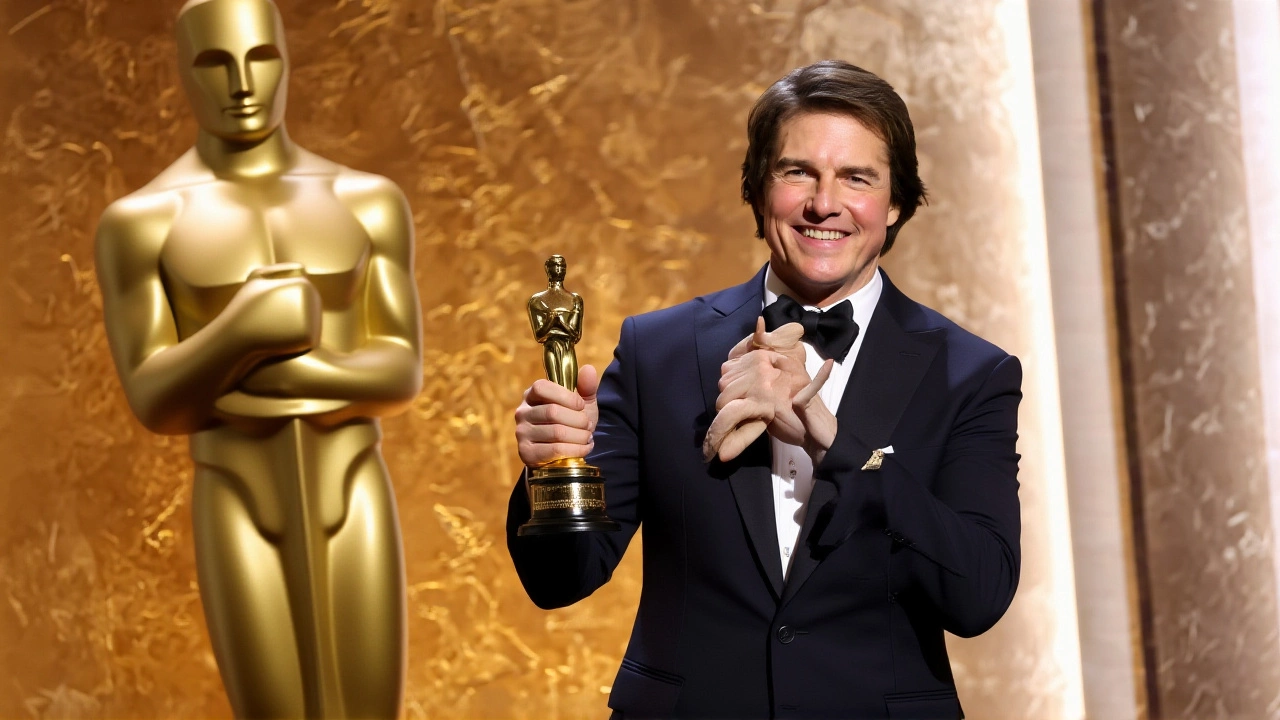On Sunday, November 16, 2025, Tom Cruise stood at the podium of the Hollywood and Highland Center in Los Angeles, clutching his first Oscar—not won in competition, but bestowed as a lifetime tribute. The 16th Governors Awards, presented by Rolex and hosted by the Academy of Motion Picture Arts and Sciences (AMPAS), honored Cruise alongside Debbie Allen, Wynn P. Thomas, and Dolly Parton. But this wasn’t just another statuette. It was the culmination of four decades of risk, sweat, and an almost religious devotion to cinema.
"It Is Who I Am"
Cruise didn’t just thank the Academy. He rewrote the script of acceptance speeches. "Making films is not what I do," he said, voice steady, eyes scanning the room. "It is who I am." The silence that followed wasn’t polite—it was reverent. He didn’t talk about box office numbers or franchise deals. He talked about hunger. The kind that starts at age nine, watching a movie and feeling something crack open inside you. "A hunger for adventure," he continued. "For knowledge. For understanding humanity." He turned to the crowd and asked a simple, devastating question: "If you worked with me, would you mind standing up right now?" And one by one—stunt coordinators, camera operators, script supervisors, grips, editors—they rose. Hundreds of them. Some in tuxedos, others in jeans. Cruise didn’t just see them. He acknowledged them. "I carry with me each of you," he said. "Thank you. Thank you. Thank you."The Man Behind the Stunt
The introduction came from Alejandro González Iñárritu, the Mexican director behind Birdman and The Revenant. Iñárritu didn’t give a speech—he gave a forensic breakdown. "He shook my hand firmly," Iñárritu recalled. "Looked straight into my eyes with those laser-sharp retinas. And then—he described every performance, every line, every edit, every camera angle. Scene by scene." He spoke of the "tiny calibrations"—the tilt of a chin, the half-breath before a sprint, the millimeter between silence and revelation. "Every breath. Every eyebrow. The pause. The diction. The intention on every word." Iñárritu didn’t just praise Cruise’s acting. He described him as a filmmaker’s filmmaker. "His stunts turn risk into ritual," he said. "Every jump, every climb, every cockpit dive says to the audience: I have done the impossible, so you can believe in the possible again." It’s a line that lands harder when you remember Cruise broke his ankle during Mission: Impossible – Fallout in 2018. That he’s 63 and still climbs buildings, rides motorcycles off cliffs, and flies helicopters for real. No green screens. No doubles. Just him, a harness, and a crew holding their breath.A Legacy Built on Practical Magic
The Academy’s citation didn’t mince words. They pointed to his 1983 breakout in Risky Business, his role in resurrecting the action genre with the Mission: Impossible franchise (now six films and counting), and his unwavering commitment to practical effects—even when studios begged him to CGI it. He didn’t just resist digital shortcuts. He redefined what audiences expect from spectacle. "Cinema is not built by one person," Cruise said. And he meant it. He didn’t just thank his crew—he made them part of the moment. The room didn’t just applaud. It stood with him. That’s rare.What’s Next? The 2026 Film
Near the end of his speech, Cruise dropped a quiet bombshell. "Thank you so much," he said, smiling faintly. "Can’t wait for you all to see the film next year." No title. No plot. Just a promise. Sources confirm the project is a top-secret collaboration with director Christopher McQuarrie, rumored to be the seventh Mission: Impossible installment—possibly the final one. If so, it’s not an ending. It’s a coronation.
Why This Matters
In an era of streaming algorithms and AI-generated content, Cruise’s Oscar felt like a rebellion. It wasn’t about trends. It was about craft. About sweat on the lens. About the cost of doing something real. He didn’t win because he’s famous. He won because he’s become a symbol: proof that human effort still moves people. That the magic of cinema isn’t in pixels—it’s in the pulse behind the camera.What This Means for Hollywood
The Governors Awards have always honored the unsung. But this year, they honored a man who made the unsung visible. Cruise’s speech was a quiet rebuke to the industry’s growing detachment—from physical performance, from crew collaboration, from the tangible cost of art. His message was clear: if you want to make movies that last, you don’t outsource the soul. And for the first time in years, studio executives in the room didn’t just sit quietly. They clapped. Loudly.Frequently Asked Questions
Why did Tom Cruise get an honorary Oscar instead of a competitive one?
The Academy’s Governors Awards honor lifetime achievement and extraordinary contributions outside the standard competitive categories. Cruise has been nominated for three Oscars before—Best Actor for Born on the Fourth of July, Jerry Maguire, and Top Gun: Maverick—but never won. This award recognizes his decades-long impact on filmmaking, particularly his dedication to practical stunts and revitalizing the action genre, which transcends typical acting categories.
Who else was honored at the 2025 Governors Awards?
Alongside Tom Cruise, the 2025 Governors Awards honored Debbie Allen for her work as an actress, choreographer, and director; Wynn P. Thomas, the production designer behind classics like Malcolm X and Do the Right Thing; and Dolly Parton, for her cultural influence and contributions to film and music. Each recipient represents a different pillar of cinematic art.
What’s the significance of Cruise asking his crew to stand?
It was a powerful visual statement against the myth of the solitary star. In Hollywood, actors often get all the credit—but Cruise made it clear that every stunt, every camera move, every late night in post was a team effort. By having them stand, he turned a private gratitude into a public tribute, reminding the industry that cinema is collective labor—not just celebrity.
How does Cruise’s approach differ from modern blockbusters?
While most big films now rely heavily on CGI, Cruise insists on real stunts, real locations, and real physical preparation. He trained for months to climb the Burj Khalifa for Mission: Impossible – Ghost Protocol and flew a real helicopter for Top Gun: Maverick. This commitment has cost him injuries, including a fractured ankle in 2018—but it’s also made his films feel visceral, immediate, and unforgettable in a sea of digital spectacle.
What’s the next film Cruise is working on?
Cruise hinted at a 2026 release during his speech, and multiple industry insiders confirm it’s the seventh Mission: Impossible film, directed again by Christopher McQuarrie. While details are tightly guarded, early reports suggest it will involve a global espionage plot and more extreme practical stunts—possibly including a sequence filmed aboard a moving train in the Swiss Alps. If true, it’ll be his final performance in the role—and possibly his most daring yet.
Why did Alejandro González Iñárritu say this won’t be Cruise’s last Oscar?
Iñárritu wasn’t predicting another honorary award—he was hinting at a competitive win. Cruise’s performance in Top Gun: Maverick earned him his fourth Best Actor nomination. With his upcoming film expected to be even more emotionally layered, and his career showing no signs of slowing, many believe he’s now positioned for a win in a traditional category. The honorary Oscar may have been the honor he needed—but the competitive one may still be coming.
